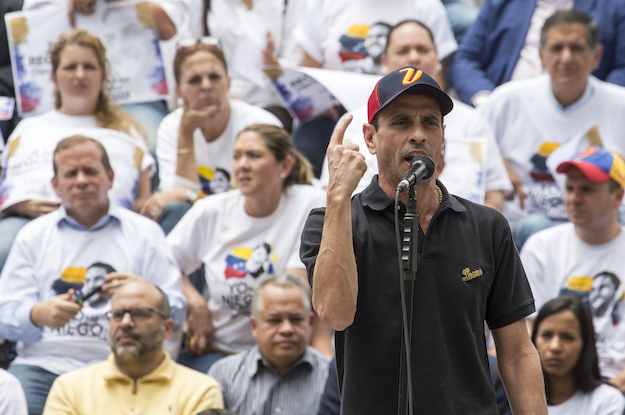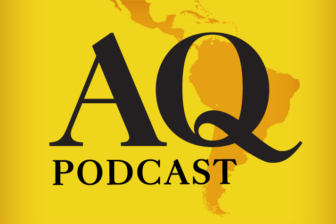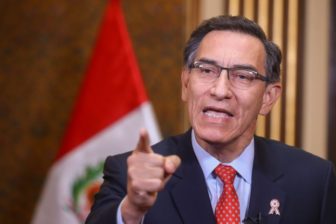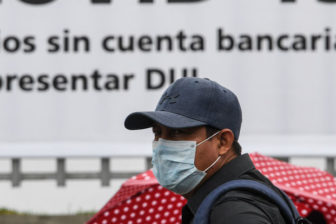CARACAS – Henrique Capriles Radonski was once the undisputed face of Venezuela’s opposition. He was a key figure in the 2002 oil strike, mayor of an affluent Caracas suburb, governor of one of the country’s most populous states, and twice a presidential candidate – losing to Nicolás Maduro in the 2013 election by just 1.49% of the vote.
But in the last seven years Capriles, 48, has found himself increasingly far from the opposition spotlight. His calls for calm rather than protest after the 2013 race, which appeared clearly to have been rigged in favor of the government, lost him political and popular support. While he remained an influential figure behind the scenes, opposition leaders advocating more direct confrontation with the regime came to the fore – most notably Juan Guaidó, the National Assembly president who the U.S. and others consider to be Venezuela’s legitimate interim leader.
Now, amid growing perceptions that Guaidó’s head-on tactics have failed to loosen Maduro’s grip on power, Capriles is positioning himself to once again lead resistance to the regime. And if his latest gambit pays off, he might just succeed.
On Aug. 23, Capriles published a proposal calling for the country’s opposition movement to change its approach to the fight against Maduro. His manifesto stirred an already boiling pot. Capriles’ suggestion that the opposition should compete in Dec. 6 parliamentary elections and be open to political agreements with the regime ran counter to two fundamental positions held by Guaidó’s coalition, which believes that any progress in Venezuela will first require Maduro’s immediate departure from office.
Capriles on Sep. 30 withdrew his participation in the December elections – saying that conditions he had outlined as a pre-requisite (a postponement of the vote and international observers) had not been met.
But his dissent has nonetheless highlighted persistent cracks in the opposition movement that are likely to widen in the months ahead. It was also in keeping with Capriles’ approach to politics over the last two decades – and a clear sign of what the still-young opposition leader hopes to achieve by breaking with Guaidó and his supporters.
Rise and fall
Capriles’ arrival on the political stage coincided with chavismo’s rise to power. In 1998 he was elected to the national Congress and designated vice-president and then president of the lower house, becoming at 26 the youngest person ever to hold the position. In 2000 he and a host of other young leaders, many of whom would go on to become key national figures, founded First Justice, which remains one of the country’s main opposition parties.
Capriles was soon elected mayor of Baruta, one of the five municipalities that make up the metropolitan Caracas area, and became a leading voice against the increasingly authoritarian regime of Hugo Chávez. Capriles was eventually jailed for four months after the 2002 coup against Chávez, won re-election as mayor on his release and, in 2008, was elected governor of the state of Miranda, defeating one of Chávez’s (and now Maduro’s) closest allies, Diosdado Cabello.
It was here that Capriles’ career reached an inflection point – and the differences between his strategic vision and that of many of his compatriots became clearer.
After losing to Chávez in presidential elections in 2012, Capriles was nominated for the second time as the opposition’s presidential candidate a year later in special elections held in the wake of Chávez’s death. Capriles narrowly lost the vote, which was immediately deemed fraudulent by opposition forces. When the chavistas in power refused to audit the results, tensions in the country reached extremes. The opposition-supporting public waited for Capriles to call them out onto the street in protest. Instead, he told them to stay home.
Many interpreted his decision as an act of cowardice. Some felt betrayed. But Capriles’ calculation – that change would come incrementally, that out-and-out conflict was to be avoided – was core to who he was and remains as a politician: a cautious, long-term thinker.
Fraudulent or not, the vote had been close and made clear that the country was divided into two roughly equal camps. Those supporting the government had backing from the military and armed militias. Seen through that lens, Capriles’ decision not to call supporters to the street may well have helped Venezuela avoid tragedy.
Nonetheless, the decision had political consequences. As opposition criticism rained down, Maduro’s censorship apparatus restricted Capriles’ access to the media – limiting his opportunities to explain his rationale. Capriles took to social media to tell his story, but his public image was deeply tarnished. His approval rating, though still positive, declined. His days as the poster child of resistance to the regime appeared over.
A comeback?
The essence of Capriles’ disagreement with opposition strategy hasn’t changed much in the intervening years.
In 2014, Leopoldo López, a former comrade-in-arms in First Justice, led national street protests in opposition to Maduro as part of a strategy known as “the way out.” As the regime cracked down – and arrested López – Capriles remained on the margins, as ever in disagreement with direct, intransigent confrontation with the government. When the opposition won parliamentary elections in 2015, Capriles immediately suggested that the triumph should be leveraged to try to build bridges with the government. He believed dialogue would help pave the way for freer elections – and more electoral success – in the months that followed.
But the necessary alliance of political actors dedicated to an electoral strategy never materialized. Three years of ups and downs went by before Guaidó, with López’s support, rose to lead the National Assembly – and direct another series of frontal clashes with the Maduro government, none of which has been successful.
It is in this context that Capriles is moving his chess pieces. While he suggested that the opposition should consider participating in elections, he was careful to stress that it would only be under certain conditions.
Those conditions were always highly unlikely to be met. But it’s unlikely Capriles was actually trying to win an election on Dec. 6. Indeed, his disagreement with the decision to boycott may have had more to do with the opposition’s failure to use elections as a bargaining chip than with the decision not to participate per se.
So what is Capriles’ end-game? First and foremost, to change the opposition’s strategy from all-out conflict with the regime to the pursuit of incremental progress, especially on the electoral battlefield. Capriles can now show the public that he has fought for a democratic solution to the conflict and that he will continue to do so ahead of gubernatorial elections in 2021.
This will be especially important if Guaidó’s leadership falls apart. The coalition is facing more internal pressure than ever after a year and a half of risky efforts that have failed to dislodge Maduro from power. Even as Guaidó’s international backing grows less enthusiastic, Capriles is trying to build a platform on which to rally support in the future. He may not have been the face of the opposition in recent years, but he still has political clout and contacts in the international community – with whom he surely spoke prior to publishing his manifesto.
Still, obstacles abound. First Justice has said it will maintain support for Guaidó. Many opposition supporters likely saw Capriles’ even entertaining the possibility of participating in the elections as kowtowing to the regime.
That said, Capriles’ history makes it difficult to paint him as a Maduro ally, unwitting or not. His break from the coalition has been only the most significant in a series of ruptures over the last year and a half. Indeed, with unity more important than ever, both sides seem to have failed to recognize that their strategies include elements that could complement one another in pursuit of short-, medium- and long-term goals. Unfortunately, this too is a familiar story.








